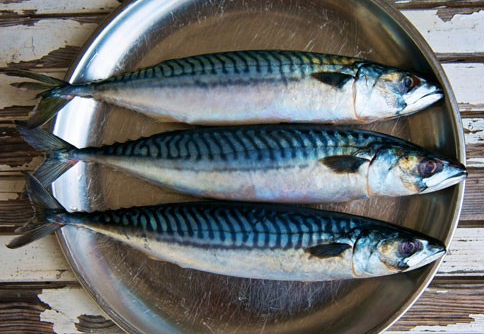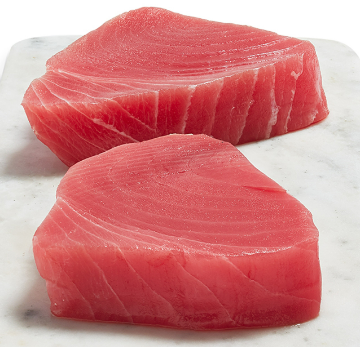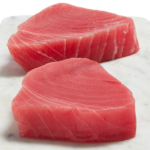As pet owners, we always want the best for our furry friends, especially when it comes to their diet. With so many options available, it can be overwhelming to determine what is safe and nutritious for our dogs. One food that has recently gained popularity for its health benefits is mackerel. But can dogs eat mackerel? The answer is yes! In fact, mackerel is a great source of omega-3 fatty acids, protein, and other essential nutrients that can benefit your dog’s overall health. However, as with any new food, it’s important to introduce it slowly and in moderation to avoid any digestive issues. In this ultimate guide, we will discuss everything you need to know about feeding mackerel to your furry friend, including its benefits, potential risks, and tips for preparation. So, let’s dive in and learn how to incorporate this nutritious fish into your dog’s diet!
Nutritional value of mackerel for dogs
Mackerel is a type of fish that is rich in omega-3 fatty acids, protein, vitamins, and minerals. These nutrients can provide numerous health benefits for your furry friend, including:
– Omega-3 fatty acids: Mackerel is an excellent source of omega-3 fatty acids, which are essential for your dog’s overall health. These fatty acids can improve skin and coat health, reduce inflammation, and support brain function.
– Protein: Mackerel is also a great source of protein, which is essential for muscle growth and repair. This nutrient can also help keep your dog feeling full and satisfied between meals.
– Vitamins and minerals: Mackerel contains several essential vitamins and minerals, including vitamin D, vitamin B12, selenium, and niacin. These nutrients can support your dog’s immune system, promote healthy bones and teeth, and aid in digestion.
Overall, mackerel is a highly nutritious food that can provide many health benefits for your furry friend. However, it’s important to note that mackerel should not be the only source of nutrition for your dog. It’s essential to provide a balanced diet that includes a variety of protein sources, vegetables, and grains.
The benefits of feeding mackerel to dogs
Feeding mackerel to your best friend can provide several health benefits, including:
– Improved skin and coat health: The omega-3 fatty acids found in mackerel can help reduce inflammation and improve skin and coat health. This can help alleviate itching, dryness, and other skin conditions.
– Reduced risk of heart disease: The omega-3 fatty acids in mackerel can also help reduce the risk of heart disease by lowering blood pressure and reducing inflammation.
– Improved brain function: Omega-3 fatty acids are also essential for brain function. Feeding your dog mackerel can help improve cognitive function, memory, and learning ability.
– Strong bones and teeth: Mackerel is a great source of vitamin D, which is essential for strong bones and teeth. This nutrient can help prevent bone diseases such as osteoporosis and rickets.
Overall, feeding mackerel to your dog can provide numerous health benefits that can improve their quality of life.
Risks and precautions when feeding mackerel to dogs
Although mackerel can provide many health benefits for your dog, there are some potential risks that you should be aware of. These include:
– Mercury toxicity: Mackerel is a type of fish that can contain high levels of mercury. This can be toxic to your dog’s health, especially if consumed in large amounts over time. To reduce the risk of mercury toxicity, it’s important to feed mackerel in moderation and choose high-quality, low-mercury sources.
– Digestive issues: Feeding your dog mackerel can also cause digestive issues such as diarrhea and vomiting, especially if introduced too quickly or in large amounts. To avoid these issues, it’s important to introduce mackerel slowly and in small amounts, and monitor your dog’s reaction closely.
– Allergic reactions: Some dogs may be allergic to mackerel or other types of fish. If your dog has a known allergy to fish, it’s important to avoid feeding them mackerel or any other type of fish.
To minimize the risks associated with feeding mackerel to your furry friend, it’s important to follow these precautions and consult with your veterinarian if you have any concerns.
How to prepare mackerel for your dog
When preparing mackerel for your dog, it’s important to choose high-quality, fresh fish that is free from any contaminants such as mercury or other toxins. Here are some tips for preparing mackerel:
– Choose fresh mackerel: When selecting mackerel, choose fresh fish that is free from any signs of spoilage such as a fishy smell or slimy texture. You can also choose frozen mackerel that is high-quality and free from any contaminants.
– Cook the mackerel: To ensure that the mackerel is safe for your dog to eat and to improve its digestibility, it’s important to cook the fish thoroughly. You can steam, bake, or grill the mackerel until it is fully cooked and flaky.
– Remove any bones: Mackerel can contain small bones that can be a choking hazard for your dog. To avoid this risk, it’s important to remove any bones from the fish before feeding it to your furry friend.
By following these tips, you can ensure that the mackerel you feed your dog is safe, nutritious, and easy to digest.
How much mackerel should dogs eat?
When feeding mackerel to your dog, it’s important to do so in moderation. The amount of mackerel your dog needs depends on their age, weight, and activity level. As a general rule, you should feed your dog mackerel as a treat or as part of a balanced meal, rather than as the main source of nutrition.
A good starting point is to feed your dog 1-2 small pieces of mackerel per week. You can gradually increase the amount over time, but it’s important to monitor your dog’s reaction and adjust the amount accordingly.
Alternatives to feeding mackerel to dogs
If your furry friend doesn’t like mackerel or if you’re concerned about the risks associated with feeding fish, there are several alternatives that you can consider. These include:
– Salmon: Salmon is another type of fish that is rich in omega-3 fatty acids and other essential nutrients. It’s a great alternative to mackerel and can provide many of the same health benefits.
– Sardines: Sardines are a small, oily fish that are rich in omega-3 fatty acids and protein. They are also low in mercury and other toxins, making them a safe and nutritious option for your furry friend.
– Supplements: If you’re concerned about feeding fish to your dog, you can consider giving them a fish oil supplement instead. These supplements contain omega-3 fatty acids and other essential nutrients that can provide many of the same health benefits as fish.
By exploring these alternatives, you can find a safe and nutritious source of omega-3 fatty acids and other essential nutrients for your furry friend.
Frequently asked questions about feeding mackerel to dogs
– Can mackerel be fed to dogs with other health conditions? Mackerel can be fed to dogs with other health conditions, but it’s important to consult with your veterinarian first. Some dogs with certain health conditions may need to avoid mackerel or other types of fish.
– Can mackerel be fed to puppies? Yes, mackerel can be fed to puppies, but it’s important to introduce it slowly and in small amounts. Puppies have sensitive digestive systems and may be more prone to digestive issues.
– Can mackerel be fed to dogs with allergies? Some dogs may be allergic to mackerel or other types of fish. If your dog has a known allergy to fish, it’s important to avoid feeding them mackerel or any other type of fish.
– Can mackerel be fed to dogs every day? It’s not recommended to feed mackerel to your dog every day, as this can increase the risk of mercury toxicity and other health issues. Instead, mackerel should be fed in moderation as part of a balanced diet.
Best brands of mackerel dog food
If you’re looking for a convenient and safe way to feed mackerel to your dog, there are several high-quality dog food brands that offer mackerel-based recipes. Some of the best brands include:
– Blue Buffalo: Blue Buffalo offers several dog food recipes that are made with mackerel as the main ingredient. These recipes are high in protein and other essential nutrients and are made with high-quality, natural ingredients.
– Taste of the Wild: Taste of the Wild offers several dog food recipes that are made with mackerel and other types of fish. These recipes are grain-free and are made with high-quality, natural ingredients.
– Merrick: Merrick offers several dog food recipes that are made with mackerel and other types of fish. These recipes are high in protein and other essential nutrients and are made with high-quality, natural ingredients.
By choosing one of these high-quality dog food brands, you can ensure that your furry friend is getting safe and nutritious mackerel-based meals.
Conclusion
So, can dogs eat mackerel? Well, feeding mackerel to your furry friend can provide numerous health benefits, including improved skin and coat health, reduced risk of heart disease, and improved brain function. However, it’s important to introduce mackerel slowly and in moderation, and to choose high-quality, low-mercury sources. By following these tips and precautions, you can ensure that your best friend is getting safe and nutritious meals that will improve their overall health and well-being.







